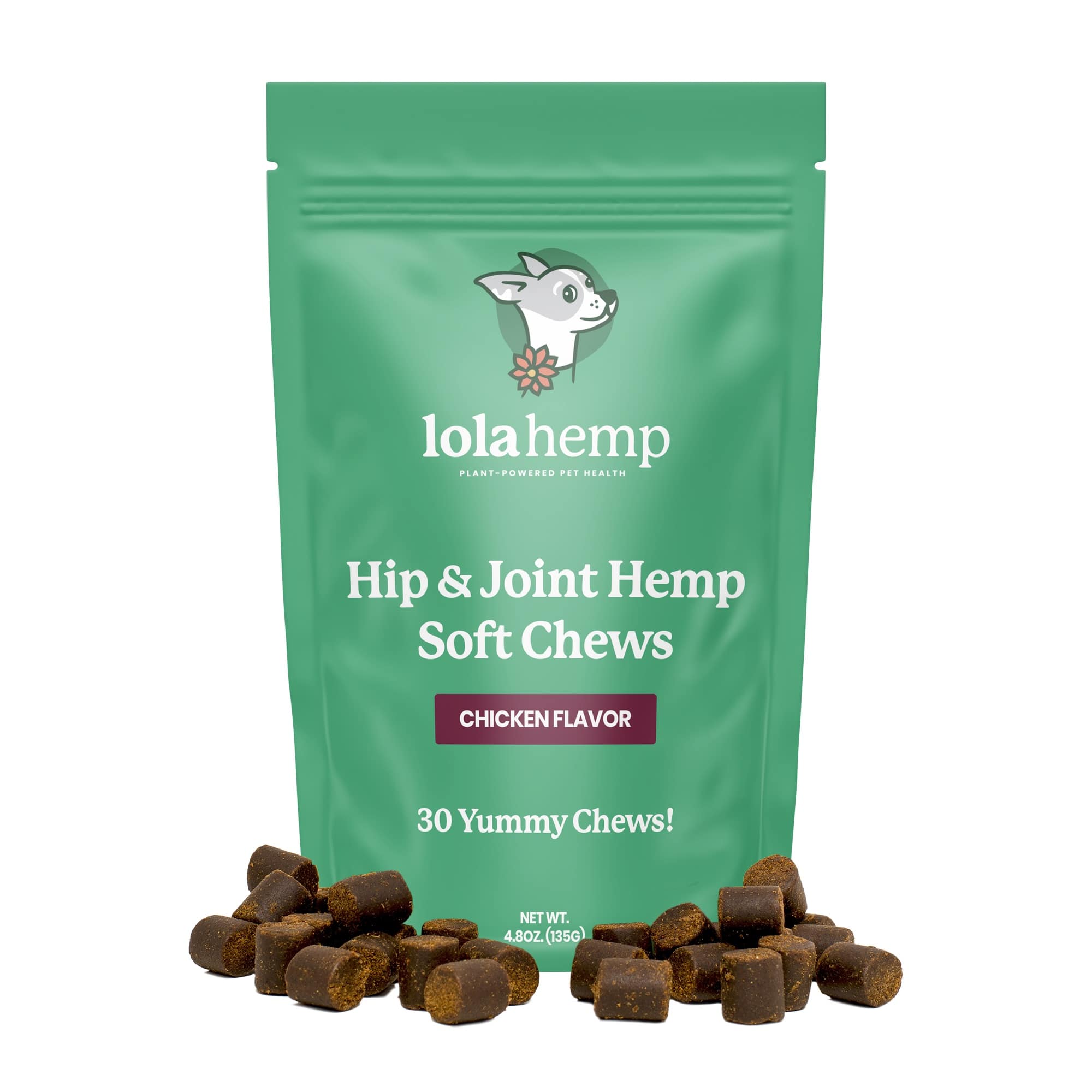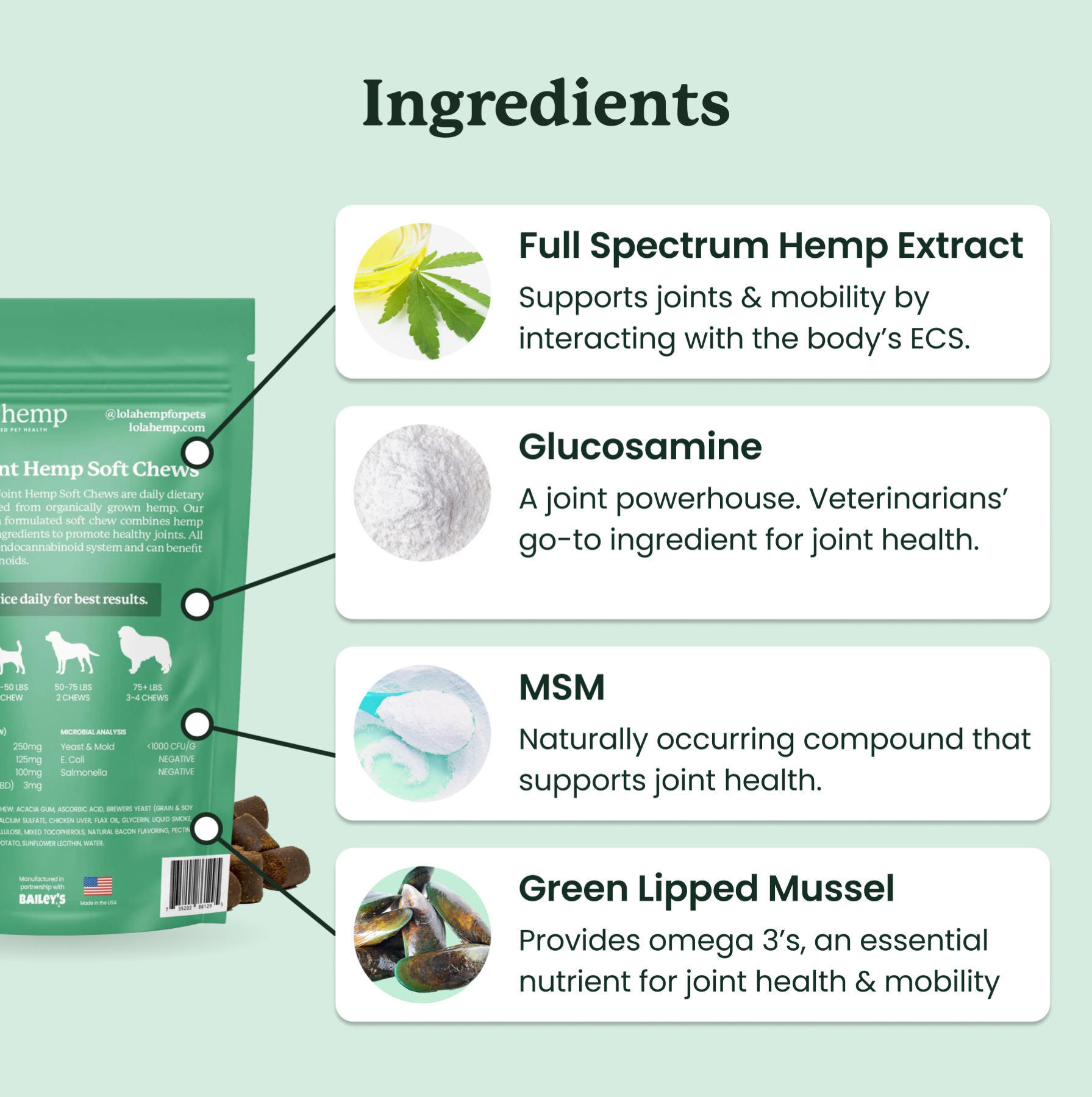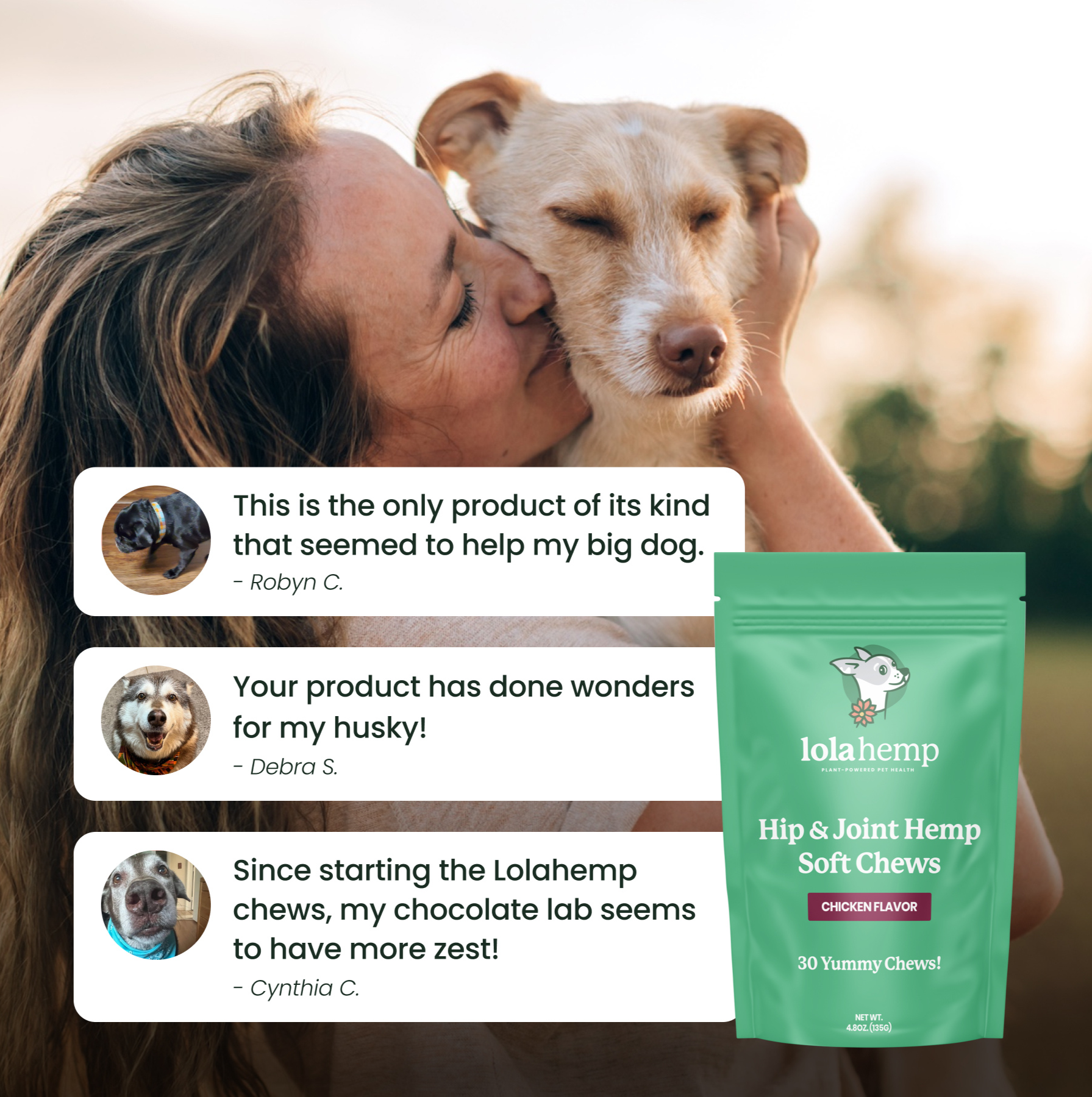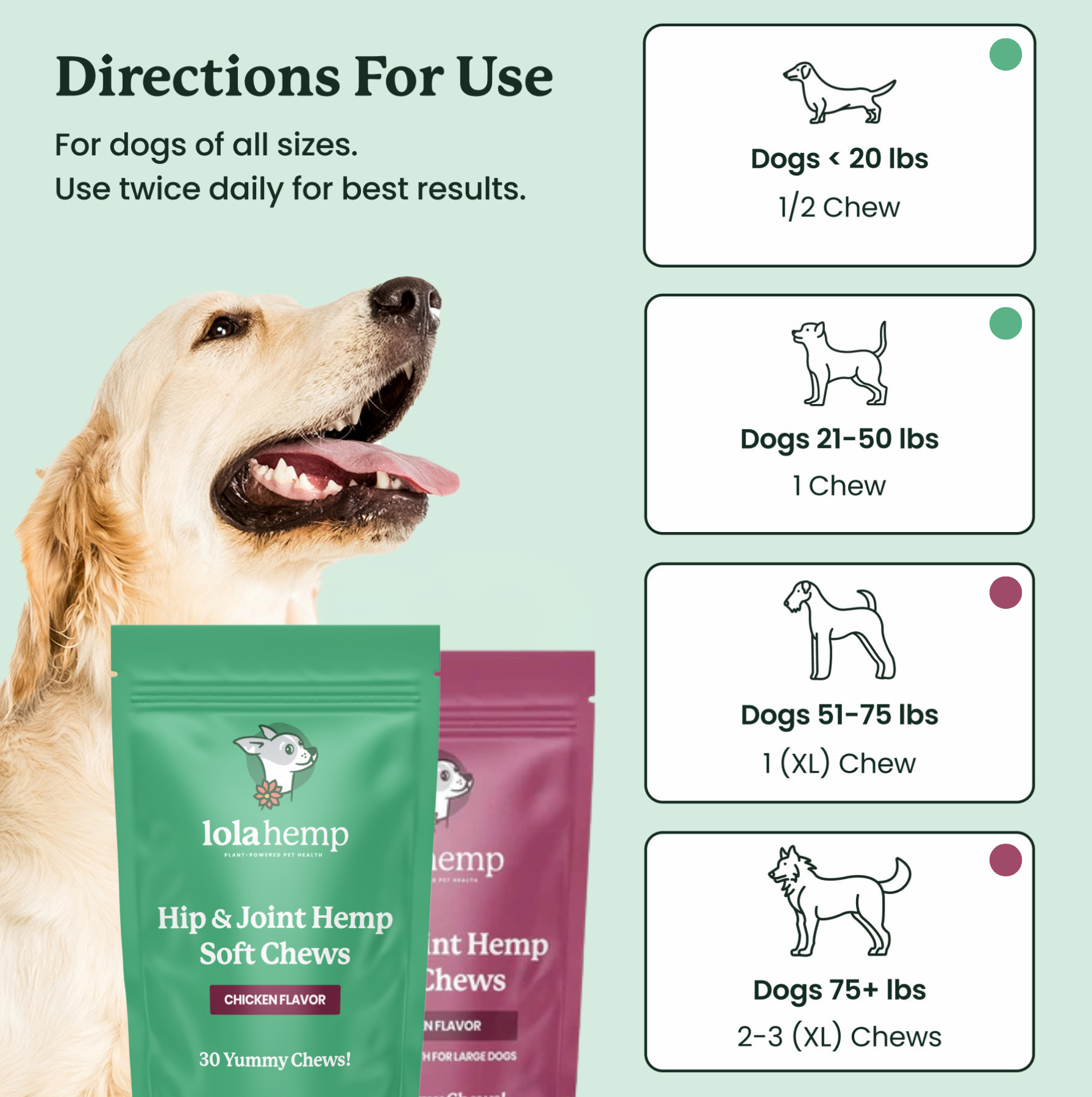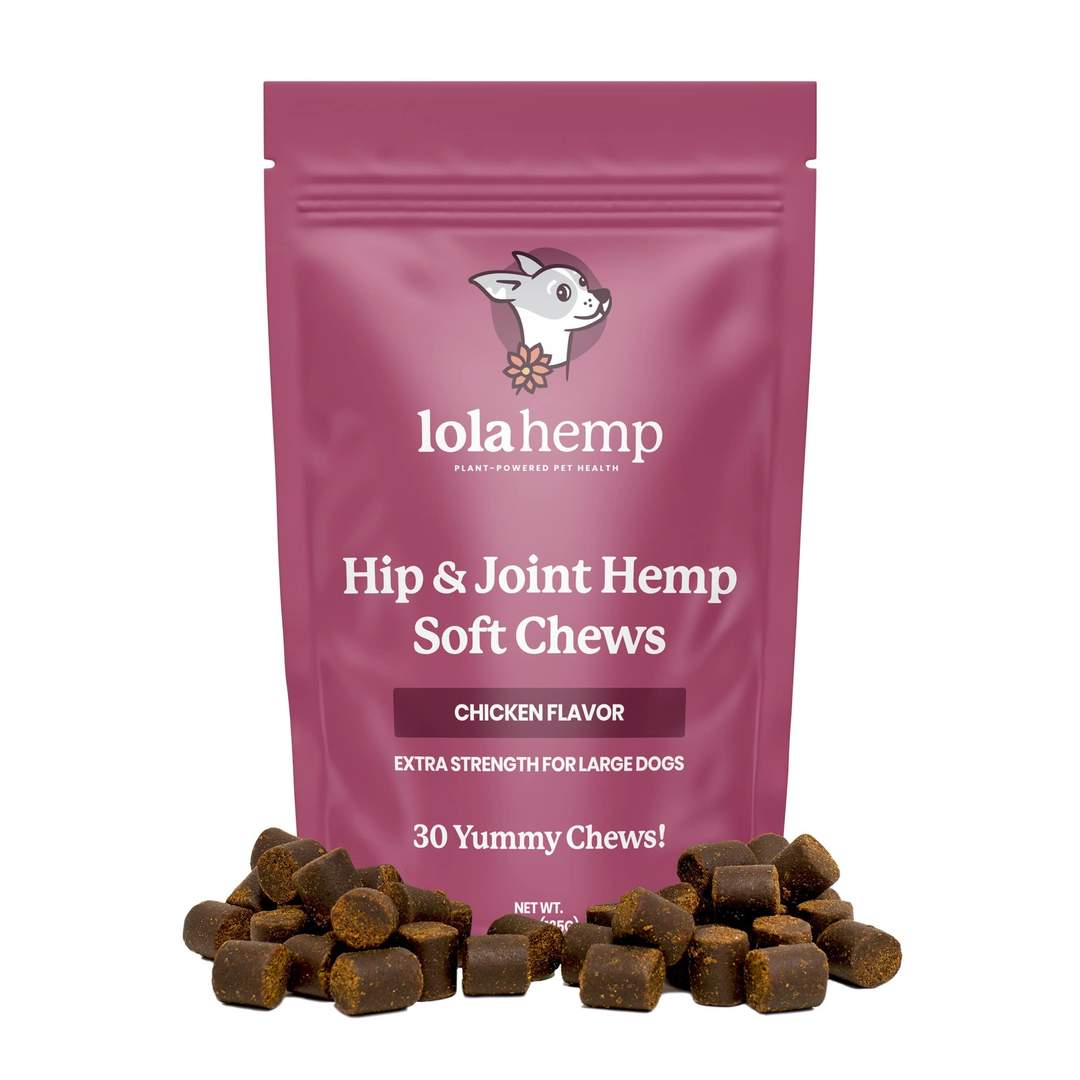MSM is a sulfur compound used as a key ingredient in a number of dog joint supplements due to its benefits to canine mobility, discussed below. It's one of the best mobility-supporting natural ingredients that experts know of.
MSM occurs naturally and enters your dog's system through their diet, but the levels present in your dog might not be enough to support optimal health. For that reason, a natural supplement with MSM can be beneficial to dogs experiencing mobility issues.
What is MSM for Dogs?
MSM is short for methylsulfonylmethane, and It is a sulfur-based dietary supplement used for joint support in pets. You may see it sold under other names, such as methyl sulfone, but "MSM" is the most common.
Methylsulfonylmethane is sold alone or in joint supplement mixtures, such as Lolahemp's Hip & Joint chews with MSM, green-lipped mussel, CBD, and glucosamine.
Reasons to Use MSM for Your Dog
Sulfur is essential for dogs and may need to be supplemented in amounts higher than you'd find in your average kibble. Here's why:
1. Some Dogs May Need Additional Sulfur
As dogs age, they may struggle to utilize nutrients effectively, which requires you to supplement additional nutrients, such as sulfur, into their diets. Many health conditions such as liver or kidney disease can impact nutrient absorption, and this often reduces sulfur availability.
Dogs who work hard utilizing their joints & muscles may simply require more sulfur to repair their muscle and joint tissue. The same is true for dogs who are struggling with chronic joint problems; a lack of sulfur can hinder their recovery greatly.
2. Sulfur is a key component of amino acids responsible for cellular health
The amino acids methionine and cysteine require sulfur to fulfill their roles synthesizing proteins, helping enzymes function, and contributing to overall cellular health.
Sulfur is essential for forming collagen and keratin; two things that are responsible for healthy joints, nails, skin, and coats. Sulfur is also a key factor in the production of glutathione, which supports immune function and detoxification.
Is MSM Safe for Dogs?
Fortunately, MSM is generally safe for humans and dogs. The safety of products containing MSM may vary, however.
The United States Food and Drug Administration (FDA) lists MSM under a special status called Generally Recognized as Safe, and this rule allows manufacturers to add MSM to human and animal food products.

Benefits of MSM for Dogs
Like many other dietary supplements, we don't yet have definitive "slam dunk" evidence that MSM is effective for treating disease. A few small animal research studies suggest that MSM may help reduce inflammation, with the most substantial evidence for joint arthritis. However, clinical studies with dogs are lacking at this time.
MSM can improve the production of keratin, which can contribute to stronger nails and hair growth. Additionally, skin health may be improved by MSM's potential anti-inflammatory benefits. Many common dog skin conditions are worsened by excess inflammation, so MSM could support the recovery of topical issues.
Finding MSM Supplements for Dogs
MSM supplements for dogs usually come in the form of powders, capsules, and soft chews. If your dog is picky about treats, you can sprinkle MSM powder on their food at mealtime instead.
MSM is tasteless and odorless despite its sulfur content. Regardless of which formulation you choose, give MSM around mealtime to avoid stomach upset.
Lolahemp's Hip & Joint Chews are formulated with MSM, CBD, green-lipped mussel, and glucosamine. These are all supplements used to help dogs with their mobility, and including all of them together can have a cumulative effect.
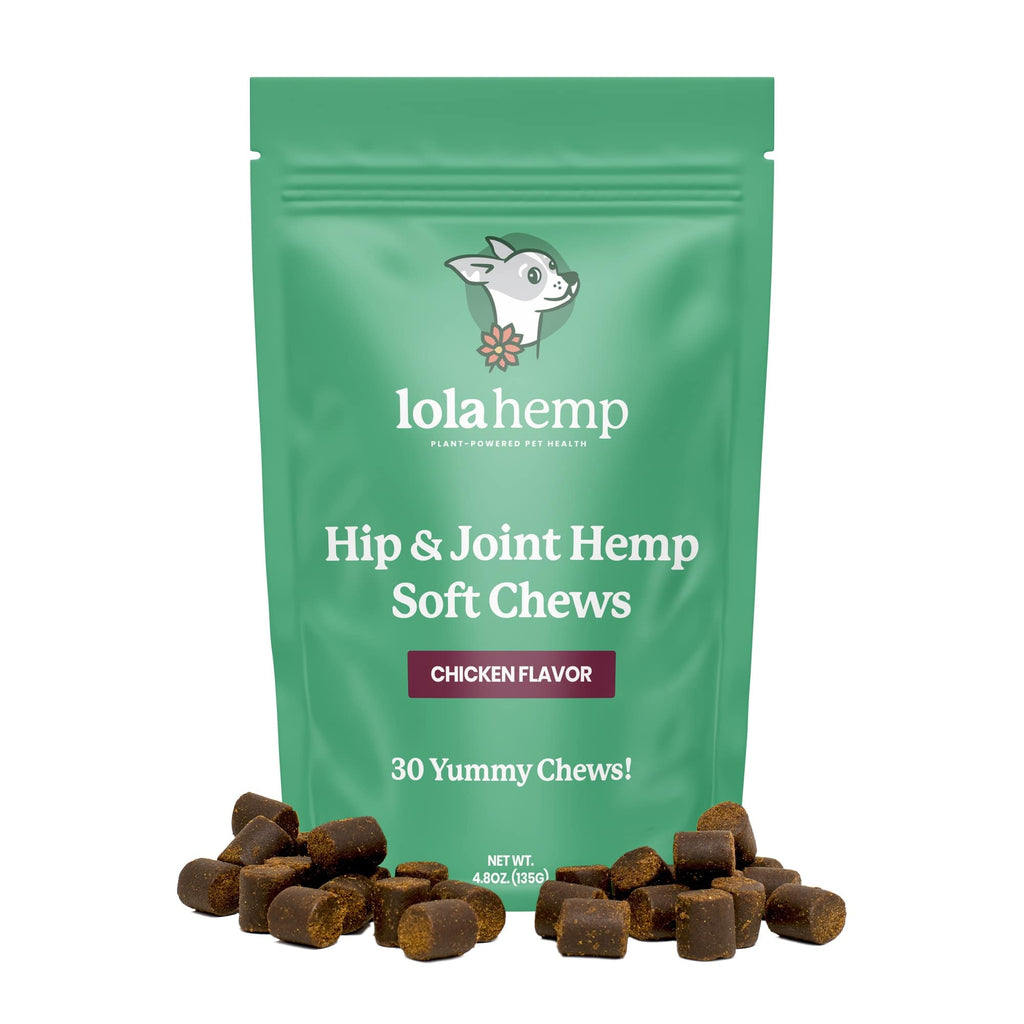 "Lolahemp Hip & Joint Chews are formulated with MSM and CBD, and come in a delicious chicken flavor that dogs love. Shop Now"
"Lolahemp Hip & Joint Chews are formulated with MSM and CBD, and come in a delicious chicken flavor that dogs love. Shop Now"
Canine MSM Dosage Guidelines
The general rule of thumb is to give dogs 500 milligrams or less per 10 pounds of your dog's weight.
The appropriate MSM dosage for your dog will depend on several factors. Your dog's weight, breed, age, health status, and other medications will all matter when taking an MSM supplement. That's why it's best to consult your veterinarian before getting started.
Conclusion: Is MSM Right for Your Dog?
Methylsulfonylmethane (MSM) is a popular dietary supplement for dogs. There are currently very few research studies on MSM in pets.
If you'd like to add MSM to your dog's wellness regimen, contact your veterinarian. Your vet will review your dog's medications and health history to help you determine whether MSM could be beneficial. Working closely with your veterinary team is the best way to build a happy, healthy life for your dog.
Frequently Asked Questions about MSM for Dogs
What does MSM do for dogs?
MSM supports joint health, reduces inflammation, and may improve mobility in dogs. It can also promote healthy skin, coat, and nails through its role in collagen production.
Is MSM safe for long-term use in dogs?
Yes, MSM is generally recognized as safe for dogs by the FDA. Long-term use is typically well tolerated when given in appropriate dosages under veterinary supervision.
Can MSM help with arthritis in dogs?
MSM may help reduce joint inflammation and discomfort associated with arthritis. While evidence is limited, many pet owners report improvement when using MSM alongside other joint supplements.
How much MSM should I give my dog?
The general dosage guideline is up to 500 mg per 10 pounds of body weight, but always check with your veterinarian for personalized recommendations based on your dog’s health.
Can MSM be taken with other supplements like glucosamine or CBD?
Yes, MSM is commonly combined with glucosamine, chondroitin, and CBD for a synergistic effect that supports mobility and joint comfort. Consult your vet before combining supplements.


